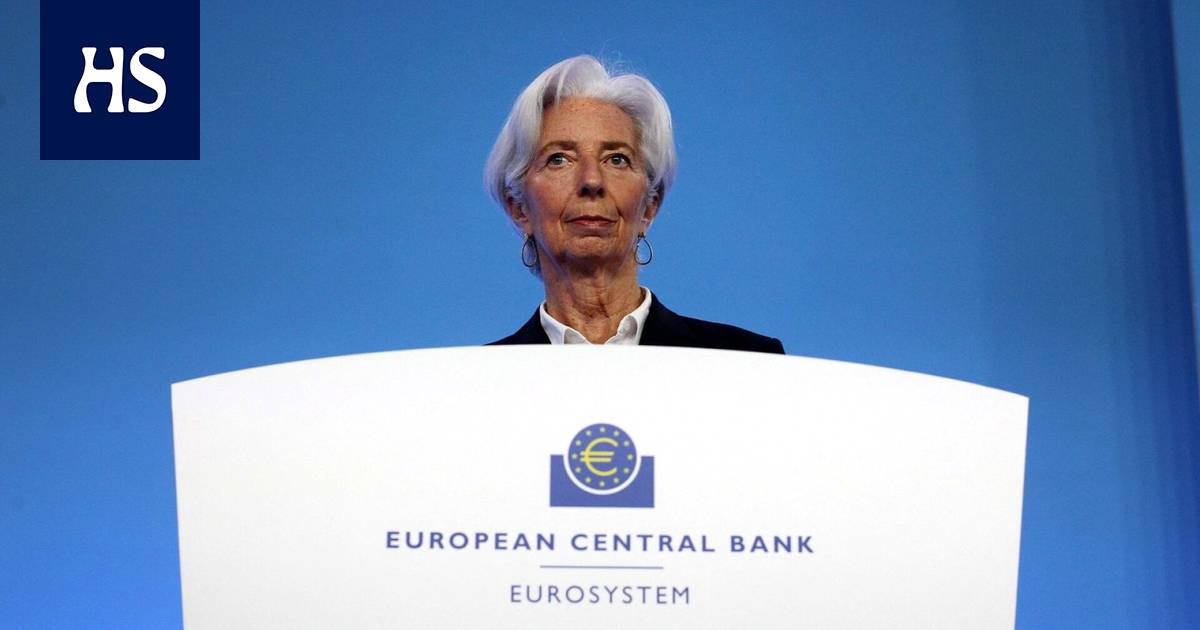The next interest rate hike is expected in February.
European the central bank (EKP) announced a moment ago that it will raise its key interest rates by 0.50 percentage points in order to curb the increase in consumer prices, i.e. inflation.
The decision means that the interest rate for basic financing operations will rise to 2.50 percent and the deposit rate for commercial banks to 2.00 percent.
However, the tightening of monetary policy is lower than in September and October, when the council deciding on monetary policy resorted to an interest rate increase of 0.75 percentage points.
“According to the ECB Council’s current interpretation, the interest rate must be made to rise significantly higher than a steady pace before it can be used to curb price developments sufficiently and ensure that the return of inflation to the two percent target is not too far into the future.”
Inflation in the euro area slowed down in November based on preliminary data, to ten percent, but is still far from the central bank’s goal of two percent.
“Interest rates were raised today and they will probably have to be raised significantly again, because inflation is now clearly too fast and according to current estimates, it would otherwise remain faster than the target for too long,” the council states.
Monetary policy significant tightening on the eve of a budding recession is risky, as it could hasten the eurozone’s derailment into recession.
As interest rates rise, companies’ investments decrease and household consumption decreases, because loans from banks are not available on as favorable terms as before. The rise in interest rates also increases the servicing costs of many households’ mortgages, forcing them to cut back on their consumption.
“Because of the energy crisis, the economy of the Eurozone may contract in the last quarter of the year and also in the first quarter of next year. The situation is very uncertain when the development of the global economy weakens and financial conditions tighten.”
Rapidly rising consumer prices weaken the purchasing power of households, because a certain amount of money can buy fewer goods and services than before.
Rapid inflation causes the most problems for low-income households, whose income goes to everyday consumption. Accelerating inflation is also harmful to companies and investors.
The tightening of monetary policy usually starts to slow down the rate of inflation after six months and reaches its full effect in a good year.
The main causes of rapid inflation are supply disruptions in the global economy and high demand. By tightening monetary policy, the central bank aims to bring supply and demand into better balance.
Thursday according to the published new ECB economic forecast, the inflation rate will slow down to 6.3% next year, 3.4% in 2024 and 2.3% in 2025.
#Monetary #Policy #ECB #slows #tightening #monetary #policy #key #interest #rates #rise #percentage #points









